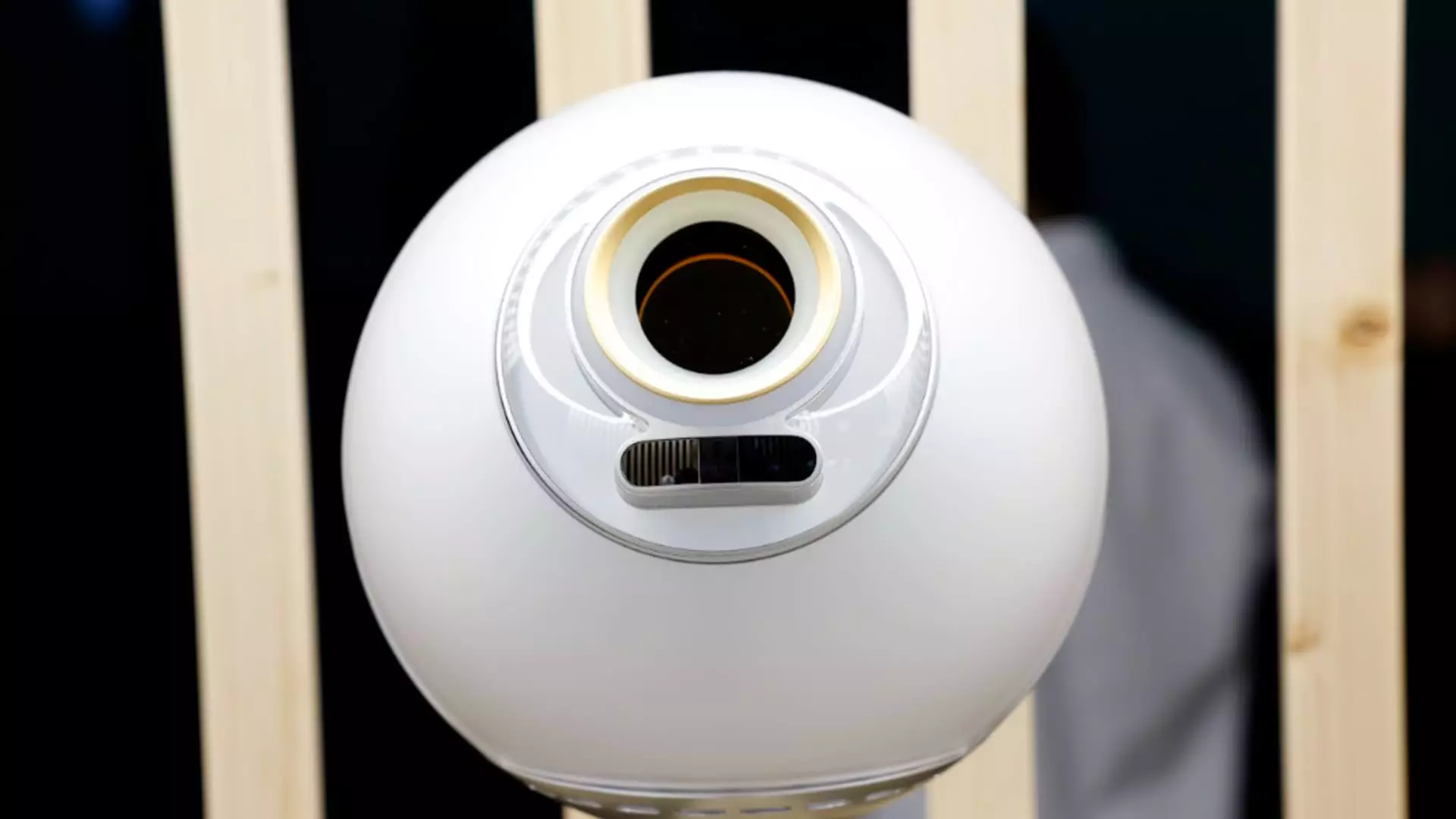In an age where digital identity and security are paramount, the launch of the World biometric identity verification project stands as a pivotal development. Co-founded by Sam Altman, the CEO of OpenAI, this initiative aims to reinvent how we authenticate human identity in a world increasingly threatened by artificial intelligence fraud. Utilizing a spherical eye-scanning device known as the Orb, World promises to transform the landscape of identity verification in the U.K. and beyond.
As World introduces its technology to London and prepares for expansion into other major U.K. cities, the implications of this innovation spark both excitement and skepticism among stakeholders. Traditional identity verification methods are being seriously challenged by advancements in AI, particularly in the realm of deep fakes, where distinguishing between human and machine has become a formidable task. World’s approach, relying on iris and facial recognition to create unique biometric codes, hopes to provide a robust solution to this pressing problem.
Understanding the Orb: Technology Meets Trust
At the heart of the World project is the Orb, a device that scans the irises of individuals, generating a unique identity code tied to biometric data. Following the verification process, participants receive WLD cryptocurrency, which can be utilized anonymously through a World ID for seamless access to various applications. Initial partnerships with platforms like Minecraft, Reddit, and Discord hint at the potential for broader industry adoption.
What sets this initiative apart is not just the technology, but the philosophy underpinning it. The World project seeks to create a decentralized network that mitigates privacy concerns associated with biometric data collection. With increasing public anxiety over data security, the guarantee that original biometric data is deleted after conversion into encrypted codes is crucial. Yet one must question whether these measures suffice in a landscape rife with data breaches and privacy challenges.
Demand from Enterprises and Governments
The growing interest from both enterprises and governmental bodies underscores the importance of implementing secure identity verification systems. Adrian Ludwig, the chief architect of Tools for Humanity and a key player in World, acknowledges the urgency as the risks posed by fraud deepen across multiple sectors, from banking to online gaming. The project aims to bridge existing gaps in identity verification, especially as nations grapple with moving away from physical identification methods.
Ludwig’s assertion that World is transitioning from a “science project to a real network” reveals a conviction that the project can scale efficiently. Yet there remain significant hurdles to overcome. Engaging with regulators and ensuring compliance with legal frameworks will shape the project’s future viability. For instance, the lessons drawn from India’s Aadhaar system, which while widely successful has been criticized for security flaws and social implications, serve as cautionary tales for World.
Privacy: The Double-Edged Sword
Despite claims of enhanced privacy through data encryption and localized computation, public skepticism lingers. The balance between technological advancement and the protection of personal identity is a delicate one. As the World project scales up from its current 13 million verified users, the inherent challenges of maintaining privacy and thwarting misuse magnify. Questions persist about how to handle the vast amount of data generated and ensuring it does not become a target for malicious actors.
Moreover, as Ludwig pointed out, the growing sophistication of AI systems raises concerns about the ability of any identity verification solution to remain effective. Current methods, including facial recognition and CAPTCHA, are increasingly vulnerable to circumvention techniques employed by advanced AI technologies. The need for a robust and agile identity verification framework becomes ever more pronounced in this context.
The Role of Governments in Identity Infrastructure
Governments worldwide are exploring digital identity frameworks with varying degrees of success. The pursuit of establishing trust in a system that fundamentally relies on technology necessitates collaboration between innovative enterprises like World and regulatory bodies. As governments express interest in improving their identity infrastructures and addressing fraud, World is strategically positioned to assist in this transition, but not without scrutiny.
Conversations with U.K. regulators showcase both promise and unease regarding the deployment of biometric systems. Ludwig stresses that World has worked diligently to address questions related to privacy and risk exposure posed by engaging in such ambitious projects. The technician’s comments highlight a growing recognition that effective identity management is paramount for governments—yet the roadmap to realizing this vision remains complex and fraught with challenges.
The advent of World’s biometric verification system signifies not just a technological leap, but a critical juncture in how identities are validated and secured in an increasingly digital world. As this project unfolds, it beckons vital discussions about privacy, regulation, and the future of identity verification amid the relentless march of AI technology.


Leave a Reply